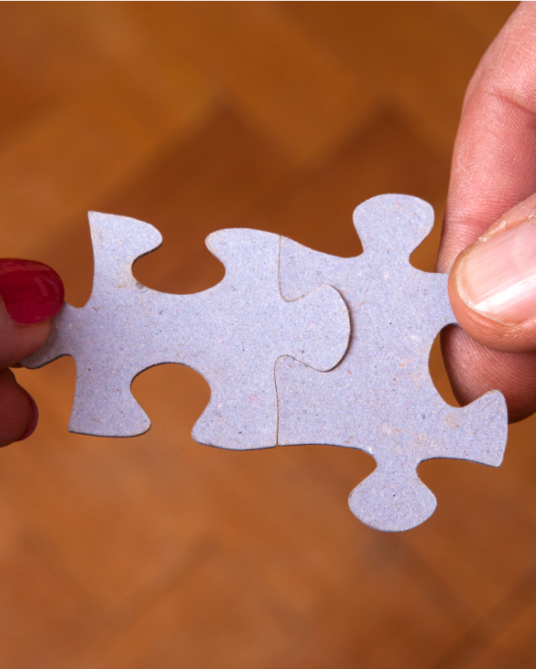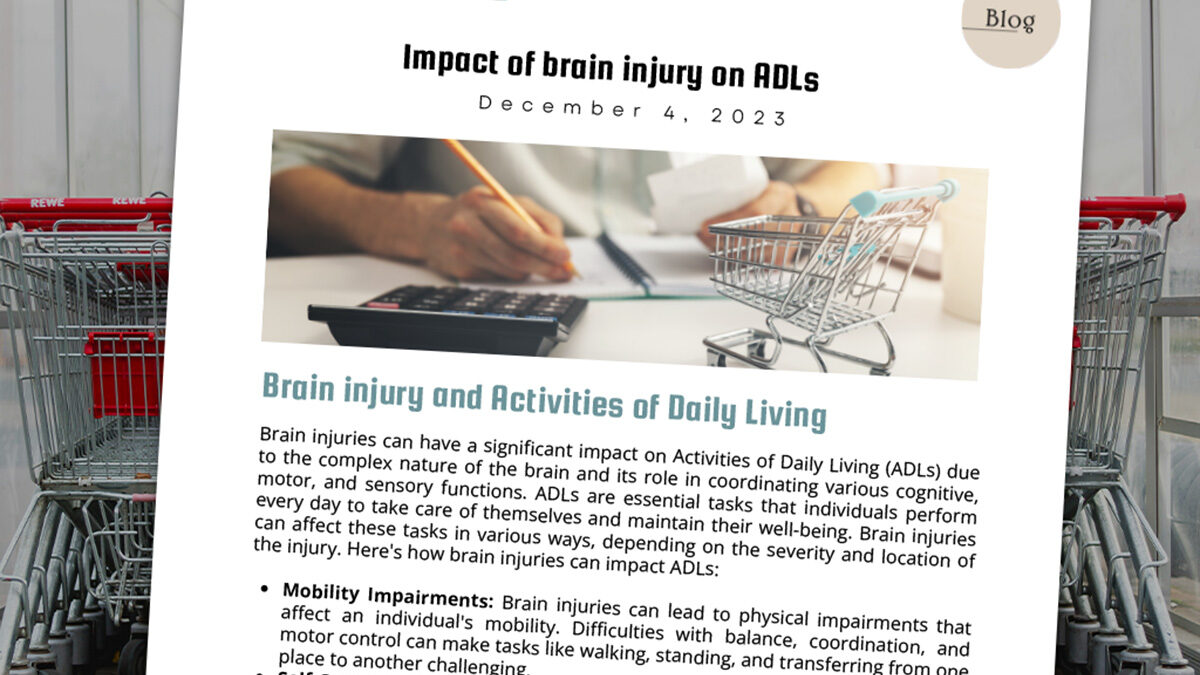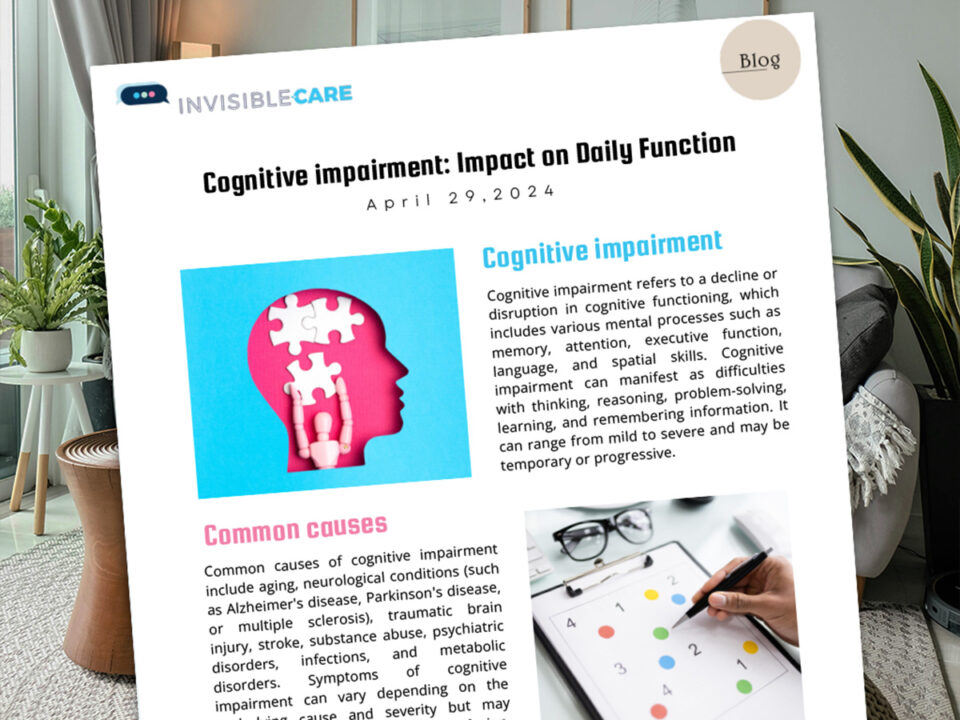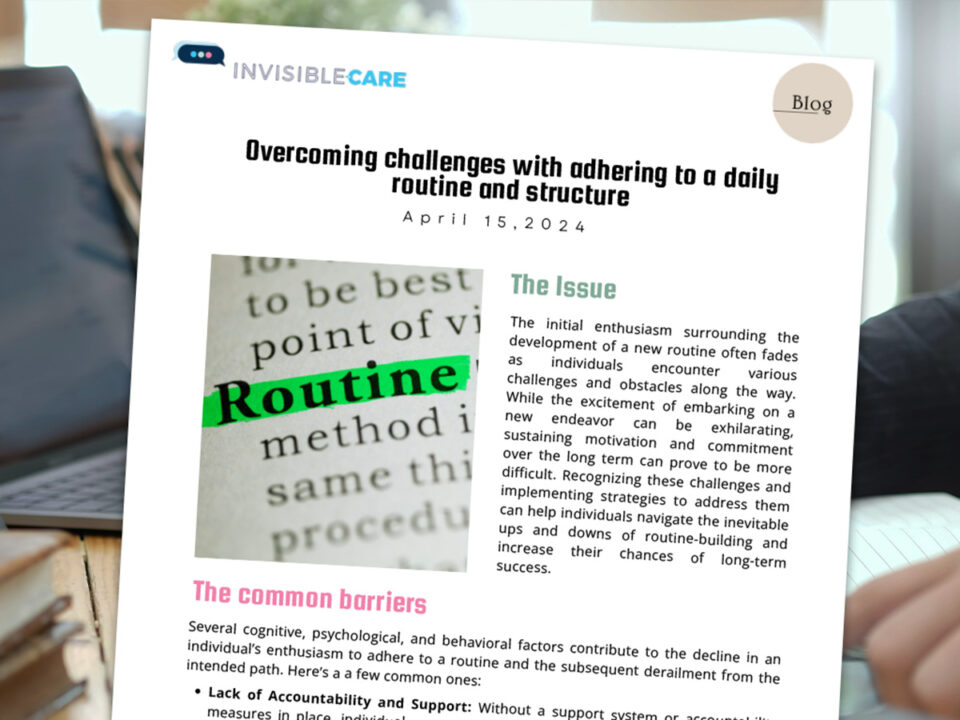
What is the Difference Between Attendant Care and Rehabilitation Support?
November 20, 2023
Invisible-care Inc. Awarded Corporate Vision Small Business Awards
December 15, 2023Brain Injury and Activities of Daily Living
Brain injuries can have a significant impact on Activities of Daily Living (ADLs) due to the complex nature of the brain and its role in coordinating various cognitive, motor, and sensory functions. ADLs are essential tasks that individuals perform every day to take care of themselves and maintain their well-being. Brain injuries can affect these tasks in various ways, depending on the severity and location of the injury. Here’s how brain injuries can impact ADLs:
- Mobility Impairments: Brain injuries can lead to physical impairments that affect an individual’s mobility. Difficulties with balance, coordination, and motor control can make tasks like walking, standing, and transferring from one place to another challenging.
- Self-Care Challenges: Brain injuries can affect an individual’s ability to perform self-care tasks independently. Tasks such as dressing, grooming, and bathing may become difficult due to cognitive impairments, physical limitations, or sensory sensitivities.
- Cognitive Challenges: Cognitive impairments resulting from brain injuries can impact memory, attention, problem-solving, and decision-making. These challenges can affect an individual’s ability to plan and organize daily activities.
- Communication Difficulties: Brain injuries can lead to communication impairments, making it challenging to express needs, understand instructions, and engage in conversations. This can affect interactions related to ADLs, such as asking for assistance.
- Eating and Nutrition: Brain injuries can affect the coordination of swallowing and chewing, leading to difficulties with eating and drinking. Individuals might require assistance to ensure proper nutrition and hydration.
- Incontinence and Toileting: Some brain injuries can result in impaired bladder and bowel control, leading to challenges with toileting and maintaining continence.
- Meal Preparation: Cognitive and physical impairments may prevent individuals from safely preparing meals. This can lead to the need for assistance with meal planning, cooking, and eating.
- Medication Management: Brain injury can affect an individual’s ability to manage medications independently. They may require assistance with medication administration and adherence.
- Sensory Sensitivities: Brain injuries might heighten sensory sensitivities, making individuals more sensitive to light, noise, touch, or other stimuli. This can affect their ability to engage in daily activities.
- Executive Function Deficits: Brain injuries can impact executive functions, including planning, organizing, initiating tasks, and managing time. These deficits can hinder the ability to complete ADLs effectively.
- Emotional and Behavioral Changes: Brain injuries can lead to mood swings, irritability, anxiety, and depression. These emotional changes can impact motivation and engagement in ADLs.
- Safety Concerns: Brain injuries can affect an individual’s awareness of their surroundings and safety precautions, potentially leading to accidents or injuries during ADLs.
- Need for Assistance: Many individuals with brain injuries require assistance from caregivers or healthcare professionals to perform ADLs. This assistance can range from supervision and cues to hands-on support.

Support for ADL completion
Remote support for activities of daily living (ADLs) offers numerous benefits for individuals who may have disabilities, chronic illnesses, or limitations that impact their ability to perform self-care tasks. By integrating remote support with in-person assistance for ADLs, individuals can receive a comprehensive and flexible care approach that adapts to their specific needs and circumstances. This combined approach maximizes the benefits of both remote and in-person care, enhancing the overall quality of life for individuals and providing peace of mind for caregivers and healthcare providers.





